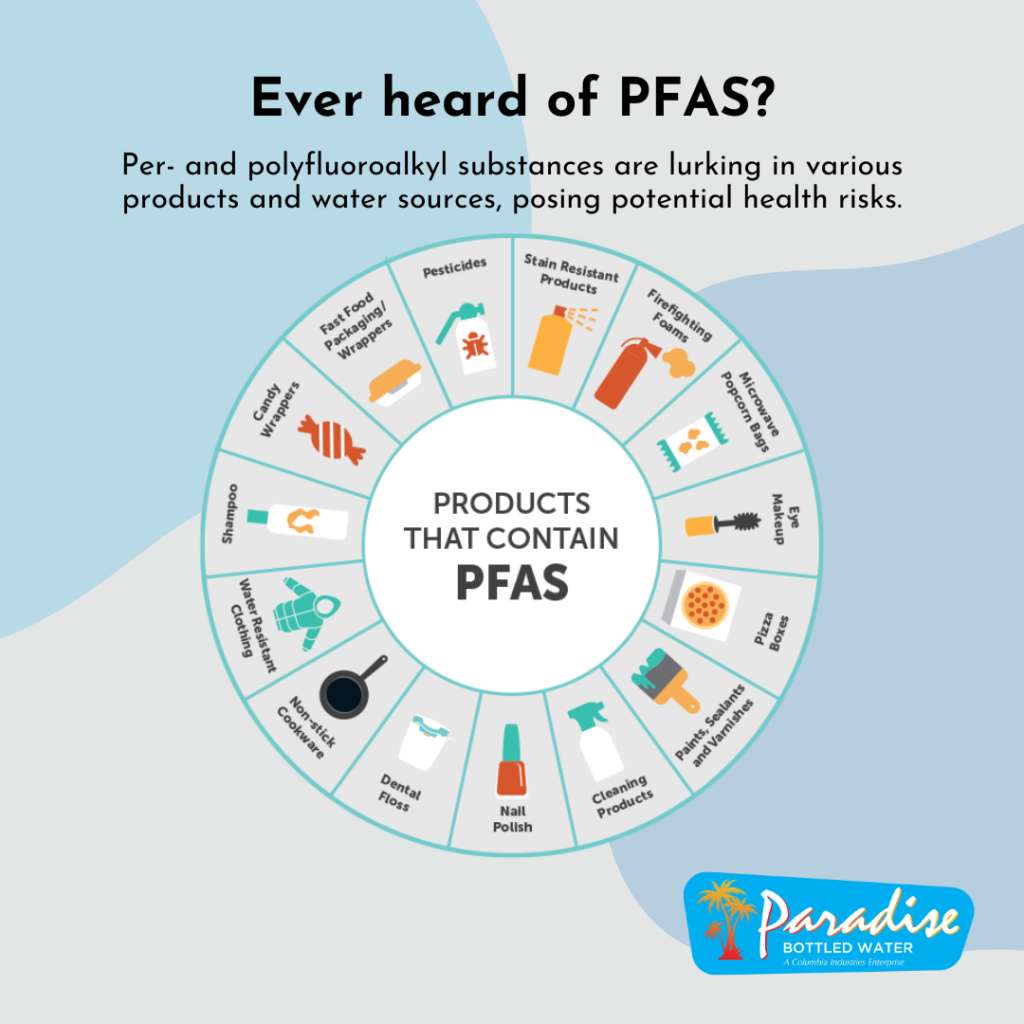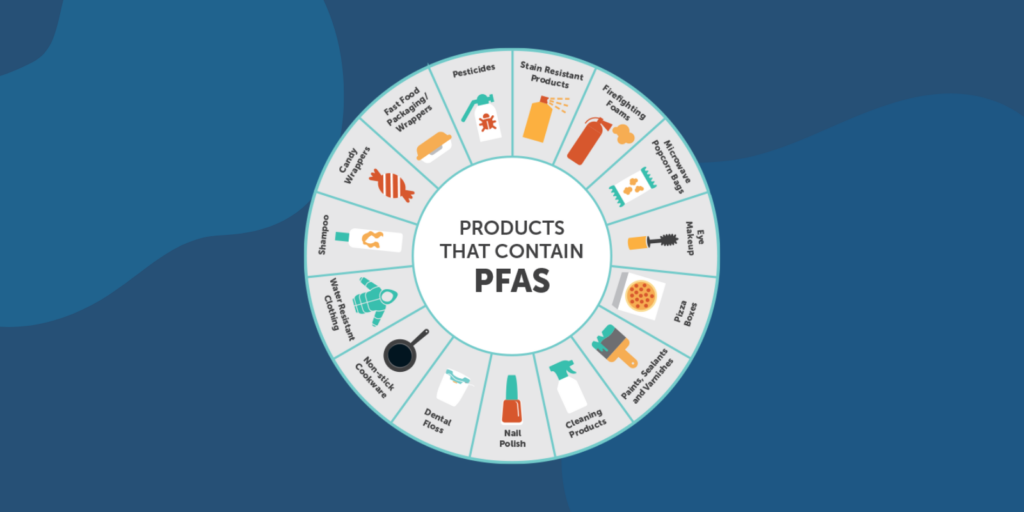Per- and polyfluoroalkyl substances (PFAS) have become a significant concern in recent years due to their widespread presence in various consumer products and water sources. These man-made chemicals, though useful in many industrial and commercial applications, pose potential risks to human health and the environment. Understanding these risks is crucial for safeguarding our well-being and making informed choices. Let’s delve deeper into what PFAS are, their health impacts, and practical steps to mitigate exposure.
What Are PFAS?
PFAS, short for per- and polyfluoroalkyl substances, encompass a group of synthetic chemicals known for their resistance to heat, water, and oil. They have been utilized in numerous products due to their unique properties, including non-stick coatings, firefighting foams, stain-resistant fabrics, and food packaging materials.

Health Impacts of PFAS
Persistent in both the environment and the human body, PFAS compounds can accumulate over time, raising concerns about their potential health effects. Studies have linked higher exposure to PFAS with various health issues, including:
- Infertility and Low Birth Weight: Research suggests a correlation between PFAS exposure and reproductive health problems, such as infertility and low birth weight in newborns.
- Cancer: Certain types of cancers, including kidney and testicular cancer, have been associated with prolonged exposure to PFAS.
- Developmental Delays: Infants and young children are particularly vulnerable to developmental delays when exposed to PFAS, which can affect cognitive and physical growth.
- Thyroid and Heart Issues: PFAS exposure may interfere with thyroid function and contribute to cardiovascular problems like high cholesterol and hypertension.
- Reduced Vaccine Response: There is evidence to suggest that PFAS exposure could impair the body’s immune response to vaccines, potentially reducing their effectiveness.
Those At Greater Risk
Certain individuals face a higher risk of adverse health effects from PFAS exposure, including:
- Infants and Young Children: Rapidly developing brains and bodies make infants and young children more susceptible to the impacts of PFAS.
- Pregnant or Breastfeeding Women: PFAS can transfer from mother to fetus or through breast milk, potentially affecting the health of both mother and child.
Practical Steps to Reduce Exposure
Minimizing exposure to PFAS is key to protecting health. Here are some practical steps individuals can take:
- Source Safe Drinking Water: Opt for bottled water from reputable brands that employ advanced filtration processes to remove contaminants like PFAS.
- Install Water Treatment Systems: Home water treatment systems or specific filters designed to remove PFAS can help ensure the safety of your drinking water.
- Choose PFAS-Free Products: Be mindful of product labels and opt for alternatives to items containing PFAS, such as non-stick cookware and stain-resistant fabrics.
Health Notices and Community Action
Community awareness and proactive measures are essential in addressing PFAS contamination. Health notices, like the one issued by the City of Kennewick regarding PFAS detection in drinking water, serve to inform residents and guide precautionary actions. While the levels detected may not warrant immediate concern, vulnerable populations should exercise caution and consider alternative water sources.
Continued monitoring of water quality and transparent communication from local authorities are vital in ensuring public safety and fostering trust within communities.
In conclusion, understanding the risks associated with PFAS and taking proactive steps to minimize exposure are critical for safeguarding both individual health and environmental well-being. By staying informed, advocating for protective measures, and making conscious choices, we can mitigate the risks posed by PFAS and create safer, healthier communities for generations to come.



